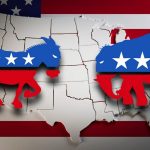Nigeria’s Economy at a Crossroads: President Tinubu’s Ambitious Reforms
Nigeria finds itself at a crucial juncture as its economy grapples with longstanding challenges, from poverty and unemployment to corruption and inflation. However, hope emerges in the form of President Bola Tinubu, who has embarked on an ambitious mission to revitalize the nation’s economy and bring about positive change. As the new leader, Tinubu is taking bold steps to tackle these issues head-on and pave the way for a brighter future.
Nigeria’s Economy: An Uphill Battle
With over 200 million people, the Nigeria population faces significant economic hardships. Dire poverty affects around 40% of its citizens, while half of adults are either unemployed or underemployed. Rampant inflation, reaching an 18-year high of nearly 23%, further exacerbates the challenges. Corruption remains endemic, hampering state institutions and public services. The rise of armed bandits and Islamist militants in the north poses additional security threats. Amid these issues, the government grapples with an overwhelming public debt and dwindling oil production, which has historically sustained the economy.
President Tinubu’s Vision for Change
President Tinubu’s vision for Nigeria centers on comprehensive reforms across various sectors. In his inaugural address, he outlined his priorities, which include bolstering manufacturing, improving electricity accessibility and affordability, simplifying exchange rate policies, and investing in crucial infrastructure projects like roads, railways, and ports. Additionally, Tinubu aims to utilize the funds previously allocated to fuel subsidies, amounting to $10 billion annually, to enhance healthcare, education, and job creation. He also commits to tackling extremist violence and instability by investing in better military equipment and personnel.
Facing the Challenges Head-On
Since taking office, President Tinubu has already made significant strides. He boldly scrapped the decades-old fuel subsidies, leading to a public outcry over rising costs. To mitigate the impact on citizens, he secured approval for a 500 billion naira ($630 million) spending package. In response to food insecurity concerns, the government declared a state of emergency, taking exceptional steps to increase agricultural output and improve supply. Nevertheless, the inflationary consequences have put additional strain on ordinary Nigerians, particularly in the northern Borno state.
Shaking Up the Central Bank
Tinubu’s reform drive extended to the Central Bank of Nigeria, where he suspended Governor Godwin Emefiele. Emefiele’s botched program to replace high-value naira notes disrupted the cash-dominated economy, leading to his suspension. The former governor now faces charges of illegal possession of a firearm. Tinubu’s administration has also suspended the head of the anti-corruption agency amid allegations of abuse of office.
Overhauling the Naira Exchange Rate
To promote transparency and attract investment, President Tinubu’s administration announced changes to the foreign-exchange market. The Nigeria’s economy will allow the naira to trade freely until it reaches a market-related level, eliminating the previous controlled rates. While this move has been welcomed by investors and economists, it also led to a record low for the naira against the dollar, raising concerns about inflation.
Challenges and Future Outlook
Tinubu’s reform efforts have garnered support from many, including investors and lenders. However, he faces the challenging task of improving living standards and winning broader public support for further contentious measures. As Nigeria’s leader, he carries the hopes and expectations of a nation striving for a more prosperous future. The road ahead may be tough, but with determination and effective policies, President Tinubu has the potential to steer Nigeria towards a brighter economic horizon.
The post Nigeria’s Economy: President Tinubu’s Ambitious Reforms appeared first on FinanceBrokerage.



